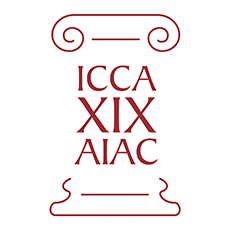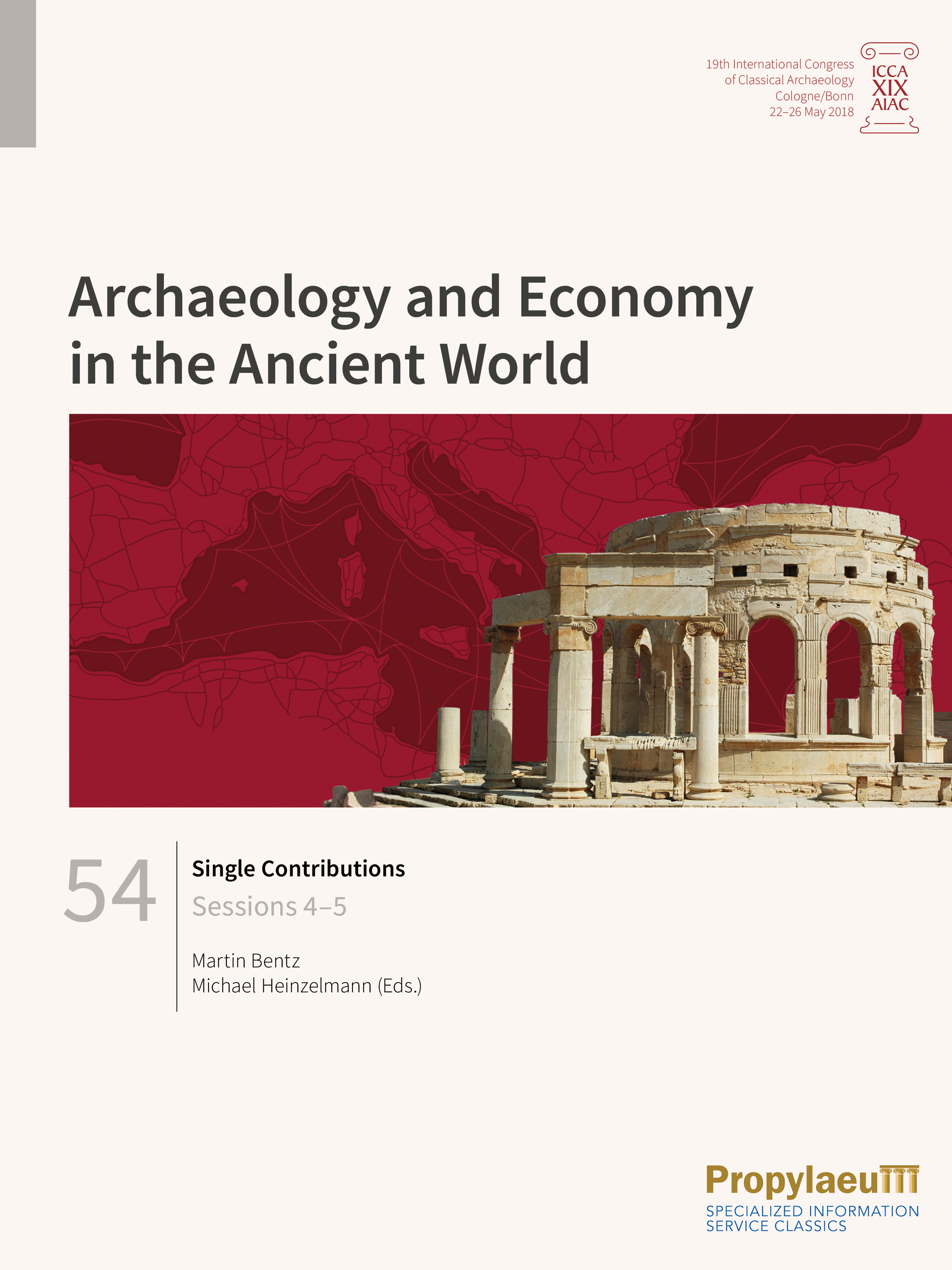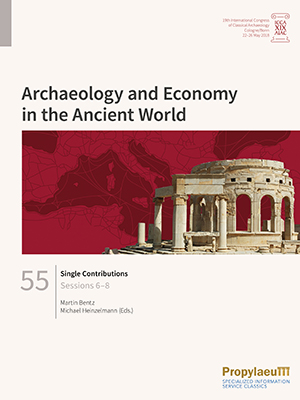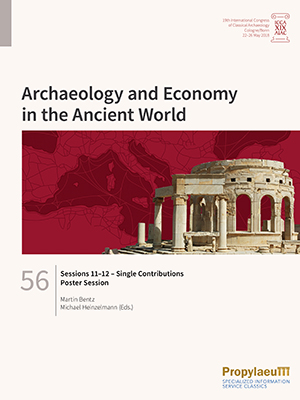Archaeology and Economy in the Ancient World
Proceedings of the 19th International Congress of Classical Archaeology, Cologne/Bonn 2018
These volumes form the final publication of the 19th International Congress of Classical Archaeology, which was held from 22 to 26 May 2018 in Cologne and Bonn on behalf of the 'Associazione Internazionale di Archaeologica Classica (AIAC)'. Under the title 'Archaeology and Economy in the Ancient World' more than 900 presentations, divided into 11 sections and 128 panels, dealt with various aspects of ancient economic history.
In fact, economic aspects permeate all areas of public and private life in ancient societies, whether in urban development, religion, art, housing, or in death. Research on ancient economies has long played a significant role in ancient history. Increasingly in the last decades, awareness has grown in archaeology that the material culture of ancient societies offers excellent opportunities for studying the structure, performance, and dynamics of ancient economic systems and economic processes. Therefore, the main objective of this congress was to understand economy as a central element of classical societies and to analyse its interaction with ecological, political, social, religious, and cultural backgrounds. The theme of the congress was addressed to all disciplines that deal with Greco-Roman civilization and their neighbouring cultures from the Aegean Bronze Age to the end of Late Antiquity.
In the present series, numerous panels are presented as independent thematic volumes (Volumes 1–52). The further contributions are compiled in four collective volumes (Volumes 53–56).

Editors
Prof. Dr. Martin Bentz
Institut für Archäologie und Kulturanthropologie
Universität Bonn
Prof. Dr. Michael Heinzelmann
Archäologisches Institut
Universität zu Köln
Internet: 19. ICCA 2018
Email: congress.aiac2018@uni-bonn.de
Published so far
Sessions 4–5, Single Contributions
Economic aspects permeate all areas of public and private life in ancient societies, whether in urban development, religion, art, housing, or in death. Research on ancient economies has long played a significant role in ancient history. Increasingly in the last decades, awareness has grown in archaeology that the material culture of ancient societies offers excellent opportunities for studying the structure, performance, and dynamics of ancient economic systems and economic processes. Therefore, the main objective of this congress was to understand economy as a central element of classical societies and to analyse its interaction with ecological, political, social, religious, and cultural backgrounds. The theme of the congress was addressed to all disciplines that deal with Greco-Roman civilization and their neighbouring cultures from the Aegean Bronze Age to the end of Late Antiquity.
In this collective volume, single contributions of sessions 4 and 5 deal with questions on the exploitation of resources such as metals and marble in the Roman imperial period and also on distribution, trade and networks in general in antiquity. Thematically, the studies range from trade and cultural contacts in the Iron Age and Archaic Mediterranean, Greek and Roman coinage, to Roman trade and transport systems.
Sessions 6–8, Single Contributions
Economic aspects permeate all areas of public and private life in ancient societies, whether in urban development, religion, art, housing, or in death. Research on ancient economies has long played a significant role in ancient history. Increasingly in the last decades, awareness has grown in archaeology that the material culture of ancient societies offers excellent opportunities for studying the structure, performance, and dynamics of ancient economic systems and economic processes. Therefore, the main objective of this congress was to understand economy as a central element of classical societies and to analyse its interaction with ecological, political, social, religious, and cultural backgrounds. The theme of the congress was addressed to all disciplines that deal with Greco-Roman civilization and their neighbouring cultures from the Aegean Bronze Age to the end of Late Antiquity.
This collective volume contains single contributions from sessions 6, 7 and 8, which discuss questions about consumption and investment in everyday life, sanctuaries and urban contexts, as well as questions about the role of the city in the ancient economy.
Sessions 11–12, Single Contributions – Poster Sessions
Economic aspects permeate all areas of public and private life in ancient societies, whether in urban development, religion, art, housing, or in death. Research on ancient economies has long played a significant role in ancient history. Increasingly in the last decades, awareness has grown in archaeology that the material culture of ancient societies offers excellent opportunities for studying the structure, performance, and dynamics of ancient economic systems and economic processes. Therefore, the main objective of this congress was to understand economy as a central element of classical societies and to analyse its interaction with ecological, political, social, religious, and cultural backgrounds. The theme of the congress was addressed to all disciplines that deal with Greco-Roman civilization and their neighbouring cultures from the Aegean Bronze Age to the end of Late Antiquity.
In this collective volume, single contributions from sessions 11 and 12 deal with digital topics such as computational approaches and 3D documentation in archaeology and building research. On the other hand, the studies include topics on ancient sculptures and sanctuaries as well as the rituals associated with them.
Furthermore, the numerous transcribed posters which have been presented and discussed during the congress week in the context of a poster session are published in this volume.









